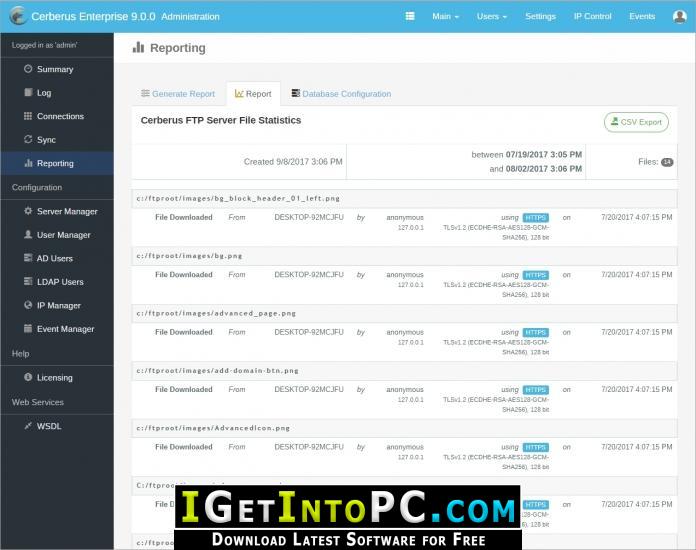

Most of these encumbrances do not apply to articles or papers.
#Online ftp server free software#
Other software runs the gamut from freely redistributable to proprietary trade secrets - you can't always tell without asking - so ask first. In general, if you wrote code here at Brown, it is probably at least partly owned by the University, and so it must have a Department copyright notice on it. So you must be very careful about what you put up for ftp. The constraints are license agreements, copyrights, and US export laws. Many things on our systems may not be distributed beyond the department, the university or, in some cases, the country.
#Online ftp server free archive#
Legal IssuesĪnything you put on our ftp archive is immediately available to the entire world. If you don't, you'll connect okay, but nothing else will work. Note that users behind firewalls must use passive ftp connections when using encryption. Logging in that way will put you in your /u/ logname directory, but you can still access the whole archive. In addition, CS users may log in using their ldap passwords. Our ftp server accepts only TLS encrypted sessions at this URL: Īnonymous and guest logins work here as above. Guest account subdirectories are owned by the people who requested them, so they can add or remove files directly.Ĭontact the tstaff for an ftp guest account.

The guest section of the ftp archive is mounted locally at /sysvol/ftp/guest. If an unencrypted session is used, the security this provides is minimal. This requires the remote user to type a password to login, and places them in a part of the archive that is inaccessible by anonymous ftp. FTP Guest Accountsįor non-public file tranfers, where privacy is a concern, you may want an FTP guest account. Local users can access uploaded files directly using the filesystem. Files in the incoming section are removed automatically after they have not been modified for 3 days. Anonymous users cannot download files uploaded by anonymous users. The Incoming SectionĪnyone may upload files to the incoming section. These sections of the archive can be modified directly at /home/ftp/pub and /home/ftp/u. The public and user sections of the ftp archive are located on the local filesystem in /home/ftp. The user section is for posting materials meant for a limited audience, but without any limitations on who may access them. The public section is for posting software and other documents that are meant to reach a broad audience. There are four sections of the archive, the public section ( /pub), the user section ( /u), the incoming section ( /incoming) and the guest account section (not visible). The department maintains an anonymous FTP site for the purpose of disseminating Brown software and other documents.


 0 kommentar(er)
0 kommentar(er)
